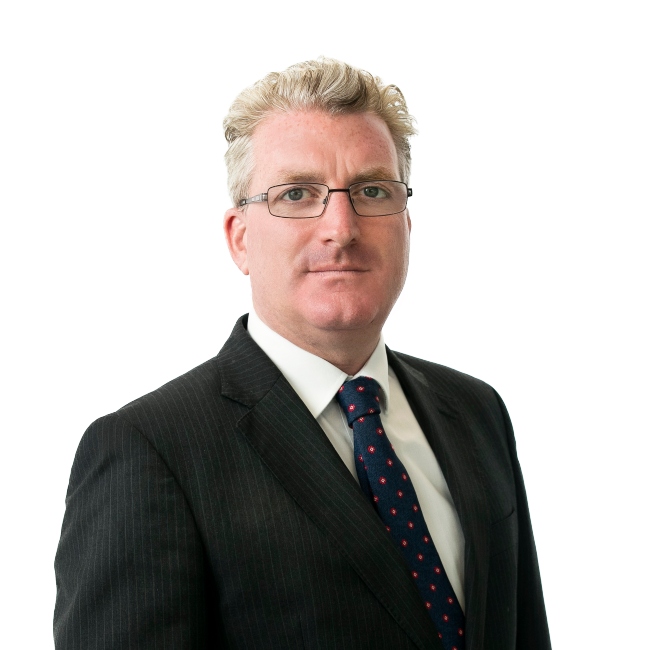Bernard Walsh, head of Pensions and Investments at Bank of Ireland, advises on how to plan smartly for retirement.
Though pandemic related restrictions and lockdowns decimated the incomes of thousands of business owners and self-employed through 2020, the volume of pension savings held up relatively well. Bernard Walsh, head of Pensions & Investments, Bank of Ireland Investment Markets, muses that when spending more time away from the workplace, people got an insight into what life in retirement might look like.
“Our customers are telling us that they recognise that they need to take steps to plan for retirement,” says Walsh.
“The key to ensuring that you do not get any nasty surprises when you come to the end of your working life is to ensure that you get good advice now and on an ongoing basis”
Bernard Walsh has spent more than 25 years working in most parts of the financial services industry. He is a graduate of UCC and holds postgraduate qualifications from UCD and Coventry University. He is a regular commentator on personal finance and investing in the media. Walsh has a reputation for making complex financial matters easy to understand. He believes in helping people to understand their personal finances so that they can make the right decisions to achieve the outcomes they deserve.
Speaking during the Bank of Ireland Pension Pot webinar series, Walsh noted: “A recent Bank of Ireland/Red C survey revealed that six in 10 people are thinking more about their financial future than before the onset of the pandemic. However, only half of those surveyed understand how pensions work, with men (59pc) declaring a better knowledge of this area than women (47pc).”
Plan sustainably

Bernard Walsh, head of Pensions & Investments, Bank of Ireland Investment Markets
“How you draw down your retirement funds is one of the most important financial decisions that you will make”
Although ESG (environmental, social and governance) is now the dominant theme in financial products, Walsh observes that the perception of the role of ESG in pension products is quite polarised. According to recent Bank of Ireland research, six out of 10 people have never heard of the term.
Walsh adds: “Interestingly, while many lean towards the ‘Environment’ in ESG, from our survey, the G – for ‘Governance’ – is the most important issue. Investors share two fears: that strategies with ESG credentials would attract higher fees, and that performance would be diminished.
“What is clear is that a public education programme is needed. Bank of Ireland has aimed to lead in this regard through its Financial Wellbeing programme, familiar to many through it’s ‘F-Word’ campaign and online resources. It will be looking at the specifics of ESG and pensions in the ‘Pension Pot’ free webinar series.”
While the ESG issue is important Walsh’s view is that pension savers also need to learn more about drawing down their pension. Annuity rates remain at ultra-low levels due to people living longer and low interest rates, and both factors are unlikely to change trajectory for some time.
“How you draw down your retirement funds is one of the most important financial decisions that you will make,” Walsh advises. “This is a decision not to be made on the last day of your working career. It should be carefully considered many years before and may evolve over time, and that decision should dictate your pension investment strategy to a great degree.
“The majority of our pension savings flow into target date funds. The model is quite simple. When you are young, you want maximum growth, so the portfolio is heavily invested in assets like shares and property. As you near your retirement age, the portfolio de-risks in a manner that reflects how you will draw down your benefits.
“If you are going to draw down most or all of your pot as tax-free cash, then it de-risks to cash. If you want to buy an income for life or an annuity, then you would de-risk your fund into assets that are linked to annuity rates, which are long-term bond yields. The challenge in recent years is that the rate at which you can buy this income, or the ‘annuity rate’, has fallen. In other words, you need a bigger pot of money today to ensure you can buy an adequate income.”
People who place their pot into as Approved Retirement Fund (ARF) are effectively extending the investment journey for 20 or 30 years or more. “You do not have a guaranteed income for life, so it’s important that your ARF is achieving a higher level of growth than what you are drawing out of the fund. If you are too cautious in how it is invested, resulting in your withdrawals exceeding the growth your fund achieves, you will see your fund diminish and run the risk that you outlive your money,” says Walsh.
“The key to ensuring that you do not get any nasty surprises when you come to the end of your working life is to ensure that you get good advice now and on an ongoing basis.”
Bank of Ireland’s 3-part Pension Pot webinar series will show you how you can plan forward to live your best retirement. Starting with the basics we’ll bring you on a journey of learning about how pensions work and how to optimise your pension fund savings and tax reliefs for when you eventually say goodbye to the workplace and hello to more freedom. It’s time to invest in you. Click here to view previous episodes or register to join the final episode live on 10 November




